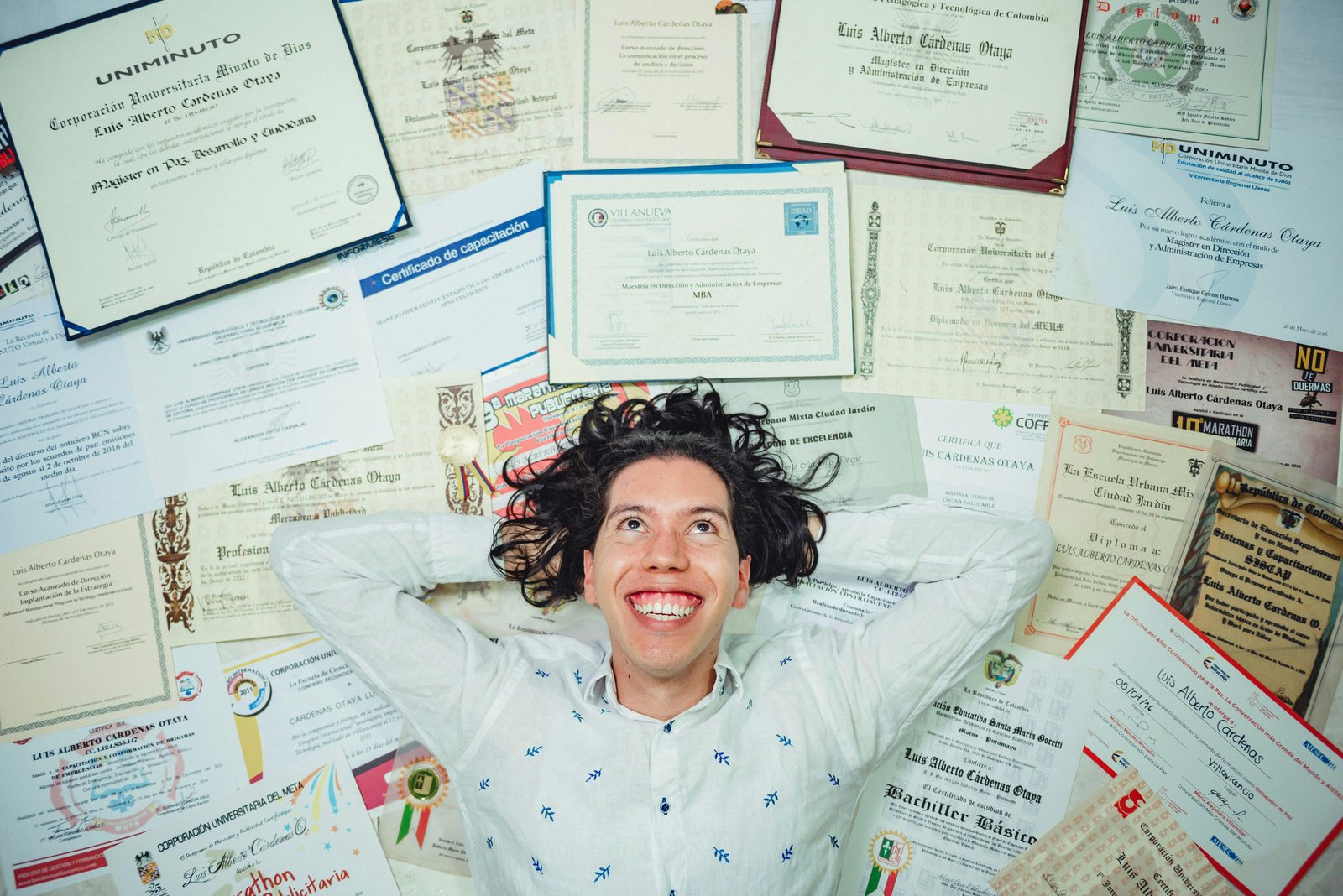It is a hot, early September morning. With a hot cup of milk tea in your hands, you might be scrolling through the morning newspaper when you suddenly notice in the ‘Health’ section with a headline like “Green Tea Reduces Stress and Risk of Heart Attack”. What would you do?
Starting your day with milk tea, especially in the hot and humid weather of September, certainly isn’t a good idea. The health news further confirms this and maybe you need to reconsider your morning beverage!
Like Rome, even healthier habits cannot be made in a day. The wellness industry is dedicated to serving this need in the most effective of ways. However, before that, let’s take a closer look at what a ‘wellness industry’ is.
It is an organized sector dedicated to improving and enhancing physical, mental, and emotional health with a collection of carefully developed products, services, and practices that include fitness, nutrition, mindfulness, and alternative medicine, to name a few. These systematically improve overall well-being and quality of life.
With a growing emphasis on holistic approaches, the industry integrates traditional and modern techniques to support a balanced lifestyle. Whether through gyms, wellness retreats, or wellness apps, its goal is to empower individuals to lead healthier, more fulfilling lives.
In 2022, the wellness industry is valued at $5.6 trillion, and by 2027 it is estimated to grow to $8.5 trillion. You can have an idea of the growing demand for this industry across the world. There is growing concern over health, especially because of declining mental health in varying intensity all over the world.
Here we give you an overview and detailed study of the wellness industry. It explains the duties and responsibilities of a wellness advisor, the required skills, and the personal attributes of wellness professionals, especially that of a wellness advisor. It would be helpful for those interested in this field as a viable career option in any part of the world.

Who Is A Wellness Advisor?
A Wellness Advisor is a professional who assists people in achieving and maintaining physical and mental wellness, or a corporate wellness consultant who designs and executes wellness programs for business houses. He is someone who has excellent communication skills, empathy for clients, and thorough knowledge of various wellness practices.
A Wellness Advisor guides clients toward a healthy, balanced, and fulfilling life.
Life’s complications often discourage people from maintaining healthy practices. As a wellness advisor, you are expected to consult with clients, inform and educate them about different wellness services, suggest suitable products and services, determine who needs customized services, guide them accordingly, and perform additional tasks based on clients’ needs.
Therefore, it is quite obvious that one of the most important functions of a Wellness Advisor is client consultation. Advisors develop programs based on client’s personal needs and requirements to ensure their satisfaction.
Regular Responsibilities
A wellness advisor may sound like a fancy role but it’s a regular job with regular responsibilities like client consultation, creating personalized wellness plans, conducting follow-ups and providing support services to clients, and several administrative activities of importance. However, certain professional responsibilities are unique and interesting.
- As Wellness Advisor, he or she needs to be very warm and cordial in their approaches to their clients. Cordially welcome clients and share a brief of the consultation.
- Keeps record of clients’ medical history, suggests treatments if they have any health issue that needs immediate attention such as weight loss, stress management or improving sleep conditions by treating insomnia, and so on.
- They enquire about clients’ current wellness status which includes physical, mental as well as lifestyle factors; mental health is treated with utmost priority.
- Clients’ current exercise routines, diet, and physical discomforts like migraine, vertigo, indigestion, insomnia, and hypertension, which impact healthy living, are also noted along with mental aspects like stress, emotional constraints, and lifestyle details. Assessment of physical health and stress levels or any other psychological factors affecting wellness also falls under the ambit of a wellness advisor.
- After a thorough assessment of the physical and mental health of the client, the wellness advisor formulates a detailed action plan and recommends certain solutions on nutrition, fitness routines, stress management, and sleep improvement, but in most cases, this is done with prior permission from the certified doctors and medical professionals.
- After this, the wellness advisors could specify certain short and long-term goals along with a few milestones to achieve, for instance, reducing the clients’ weight to a certain limit within a fixed time period. Adequate resources in the form of meal charts comprising proteins, vitamins, minerals, and exercise guidelines are provided to them with follow-up appointments to evaluate their progress at regular levels.
Wellness advisors also engage in a few administrative tasks such as scheduling appointments, keeping a detailed record of the clients, and reporting their progress to the concerned doctors and medical professionals.

Types of Clients and Work Environments
Wellness advisors work with a really wide number of people because wellness is a common and growing requirement for everyone. They work with individuals and also with corporate houses because several houses hire wellness advisors for their employees as a part of their employee welfare strategy. They can choose to work in private practice, join wellness programs, or act as consultants in fitness centers. It is important to understand that there is a wide number of wellness advisors and their roles differ accordingly, before assessing the challenges and rewards of this profession.
The very need for wellness advisors stemmed from the adverse effects of current lifestyles such as anxiety, depression, and low self-esteem. Globally, there is a higher demand for professionals with profound knowledge and skills to help individuals overcome these challenges. Wellness advisors travel to various destinations to assist individuals in their wellness journeys and it is considered as a rewarding career in the wellness sector.

Career Prospects
The wellness industry offers several career opportunities for a wellness advisor such as the ones mentioned below:
Nutritionist: Prepares personalized nutrition plans based on the client’s existing health condition. You would need a degree in Nutrition from a recognized institution.
Yoga Instructor: A yoga instructor guides clients in practicing yoga, ensuring the postures are correct, done in a proper manner, and done consistently to improve physical, emotional, and mental relaxation. To become a yoga instructor, you would need a bachelor’s or a master’s degree in Yoga, or hold a Registered Yoga Teachers Training Certificate.
Personal Trainer: Involves working closely with clients to meet personalized fitness goals. For this you need to have a Bachelor’s degree in Physical Education, be thorough have expert skills in training people in their desired fitness modules, have good knowledge of human anatomy or body per se; be very patient, have empathy, and have good communication skills.
Health Coach: A health coach is responsible for the overall health and well-being of his clients. As a professional degree, you must have at least a Bachelor’s degree, ample quality training, a profound understanding of human anatomy, Focuses on the overall well-being of clients. To become a health coach you would need a bachelor’s degree, quality training, and experience.
Wellness Coach: The profession of a wellness coach is that of a mentor exclusively responsible for balancing clients’ health with life, and improving mental and physical health. They help clients to manage stress and maintain a good diet. A wellness coach needs to have a formal degree and training from a recognized school, excellent communication skills, and patience.
Confidence Coach: Despite being a progressive generation low self-esteem is a frequently disturbing issue. Confidence coaches are formally trained and experienced professionals helping people to overcome factors that harp on their morale, and self-esteem and thus keep their confidence low. Their task is similar to that of a mentor and hence calls for exceptional communication skills, inspiring personality, expertise in counseling, patience, active listening, and other unique skills for the profession besides a professional certificate as a soft skill trainer.
Art Therapist: Over the years psychologists and wellness professionals have been utilizing the healing power of art in processing emotions and curing mental trauma. If you are keen on becoming an art therapist then you must hold a Master’s degree in art therapy, have profound knowledge of psychological theories, counseling techniques, and ethics, and must undergo supervised clinical training. Additionally, you must also have an in-depth knowledge of the culture and diversity of the demography whom you will attend, be able to implement it in practice for treating your clients, and have excellent communication skills because your words must be assuring enough to make them comfortable and confident in your treatment.
Occupational Therapists: They are a group of professionals who help people with mental and psychological challenges live regular lives by helping them overcome their challenges. Everyone has unique abilities; occupational therapists help differently-abled individuals to learn, improve, and use skills required for living a regular life. To become a professional therapist you can pursue any recognized course or certificate occupational therapist program, or a Bachelor’s degree followed by a Master’s degree in it, get trained under proper supervision, acquire relevant skills, and get your license to practice.

Challenges and Rewards
Wellness is one of the most important prerequisites for leading quality life and so people seeking professional help for improving their wellness will have considerable expectations. One of the challenges that you will face is dealing with clients’ expectations. Often they may not have any clear idea about their expectations; you may even need to help them in getting clarity.
Often people are in denial mode, especially because of their discomfort in accepting that they might need help to live well. Also, several regions and related societies treat this simple need for professionals for a good life, as a taboo. So, people hesitate to open up and deny their crisis.
Lack of adequate leadership support and employee interest is a concern because often higher management may not be willing to incur additional expenses for such initiatives. Similarly, employees also treat this as an additional expense and thus ignore it. The challenge for wellness advisors is to explain the far-reaching benefits of wellness initiatives for individual team members resulting in the possible positive effects on overall organization output.
As a wellness advisor, you can expect a really diverse set of clients. Meeting the expectations or providing satisfying solutions to their wellness issues is a significant challenge that every wellness advisor faces. It is even more challenging because of inadequate feedback from the clients, and lack of proper evaluation process for the used treatments.
What lies beyond the challenges are rewards which are way more satisfying at the end of the day’ it’s these rewards that motivate people to pursue this profession. As a wellness professional, you develop strong goodwill with your clients; it fetches you word-of-mouth publicity and gets you more clients. If you are working in any company you may get promoted or financial on accomplishing your duties exceptionally. You bring home the satisfaction of helping people in improving and certainly create a difference in their lives.

Required Education and Training
As highlighted while describing the job roles of different types of Wellness Advisors, a proper certificate is absolutely necessary to apply for this post. A bachelor’s degree in either Health and Wellness, Nutrition, Exercise Science, Psychology, Public Health, or Kinesiology is preferable who want to become a Wellness Advisor. However, some roles may prefer candidates with a master’s degree in a related field, particularly for more specialized or advanced positions.
Again, there are various certifications provided by different organizations in nations across the world that could be important. You must get certified in courses that are important according to the country where you are seeking an opportunity. If the wellness advisor’s role involves fitness training, a CPT (Certified Personal Trainer) certificate from a relevant and recognized organization will be beneficial.
By now you must have understood how important communication skills are for this role. So, communication and interpersonal skills, patience, empathy for the clients, ability to understand clients’ perspectives, and their personal problems, and sufficient work experience in related fields are very important for a wellness trainer. Besides all these, it is equally important to be in continuous touch with the current wellness trends across the globe, ranging from corporate, sports, yoga, gymnastics, and so on, to cater to the varying needs of diversified types of clients.
Tools and Resources Used
Wellness Advisors use certain tools and software in their profession. Wellness tracking apps like My Fitness Pal, Fitbit, or Apple Health, Wellness Living track certain diet and exercise routines, sync with wearable gadgets monitor physical activities and sleep patterns, and also track clients’ progress. Also, client management and scheduling appointments are done using tools like Mindbody, Acuity Scheduling, and Calendly. Since counseling the clients depends mostly on communication and in some cases, it is difficult to meet them physically and discuss these issues; Google Meet and Zoom are used for virtual meetings. These apps are also useful in case of ‘follow-up’ meetings, for reaching out to long-distance clients for counselling.
There is also a good number of books like “The Wellness Way: How to Optimize Your Health for a Lifetime” by Dr. Patrick Flynn, “The Whole Health Life: 52 Weeks to a Healthier You” by Dr. Michelle Robin on General Wellness and Holistic Health, “How Not to Die: Discover the Foods Scientifically Proven to Prevent and Reverse Disease” by Dr. Michael Greger on Nutrition and Diet, “Mindfulness for Beginners: Reclaiming the Present Moment—and Your Life” by Jon Kabat-Zinn on Mental health, “The Exercise Cure: A Doctor's All-Natural, No-Pill Prescription for Better Health and Longer Life” by Dr. Jordan Metzl on Exercise and Physical fitness, and so on, for people trying to pursue the career of a Wellness Advisor.

Steps to Become a Wellness Advisor
Step 1: Complete your education to earn a degree for the same. For courses and related details, you can scroll up to ‘Career Prospects’ and ‘Required Education and Training.’
Step 2: Get certified; apply for certification
Step 3: Check if you need a license and apply for it as well (if needed)
Step 4: Treat successfully and gain enough experience
Step 5: Keep learning and keep yourself updated.
Growth Opportunities
There are various opportunities for career growth and promotion in the wellness market, which are largely performance-based.
- Several companies are investing in employee wellness programs where interested advisors could join.
- You can work with clients as health coaches at a personal level and develop their wellness programs,
- Offer expertise to businesses on wellness strategies
- Become a motivational speaker
- Utilize online platforms to reach out to a broader audience,
- Work with wellness apps and
- You can also pursue higher education in this field, probably doing a master’s degree or engaging in research for developing new wellness strategies.
After a detailed discussion, it’s time for a rewind. Dealing with the life and journey of wellness advisors, you are well aware of the roles and responsibilities of a wellness advisor, ranging from client consultations to performing various administrative tasks, dealing with diverse clientele, challenges encountered by them, degrees and certificates required to be an advisor, resources used by them in their journey and the steps needed to be followed to become an advisor. The significance of a wellness advisor is only growing with time and it is indeed a prospective career for those interested in this particular field.
You can share your thoughts on this piece that we created to guide you. We hope you have clarity about the role of a wellness advisor and everything related to it. Save it or share it, and feel free to make any additional comments based on your preferences or specific needs.

